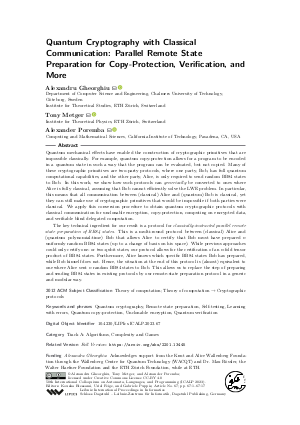LIPIcs.ICALP.2023.67.pdf
- Filesize: 0.82 MB
- 17 pages

 Creative Commons Attribution 4.0 International license
Creative Commons Attribution 4.0 International license
























Feedback for Dagstuhl Publishing